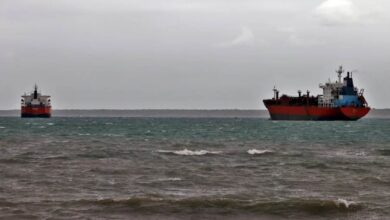Julian Assange generates diverse opinions, since he managed to disseminate important revelations for world politics, even at the expense of the authorities
Julian Assange generates diverse opinions, since he managed to spread important revelations for world politics, even at the expense of the authorities .

Julian Assange is still on trial after posting documents on world politics on his WikiLeaks portal. / Photo: Flickr / Foreign Ministry of Ecuador
LatinAmerican Post | Ariel Cipolla
Listen to this article
Leer en español: Julian Assange y el controversial debate sobre la libertad informativa
Julian Assange is an acclaimed figure, but also a controversial one. Recently, the Página 12 website highlighted that the American intellectual Noam Chomsky assured that the work of the creator of WikiLeaks was a "great service to humanity", due to the revelations it generated from the leaking of thousands of documents important to politics world.
In this same sense, from the DW website they highlight that politicians from around the world asked the United Kingdom to release the 49-year-old Australian, who is facing an extradition trial for the revelations generated on his website. In other words, although a large part of the leaked documents attack the political class, several of them want a "more transparent" world.
The founder of the site could face a sentence of 175 years in prison, as revealed from the 0223 website. Faced with this scenario, we decided to find out what was the role that the Australian played in the dissemination of different documents that, one or another way, generated huge revelations for world politics.
Julian Assange and his role in information transparency
The current arrest of Julian Assange caused divided opinions in international politics. According to what the Diario Jornada website reveals, an American journalist accused the president of the United States, Donald Trump, of being involved in the extradition trial that the journalist is going through in the United Kingdom.
To understand his story, we need to understand this person's life a little better. According to what the BBC comments, he is the "controversial founder of WikiLeaks", a person whom the United States considers a "threat", because his website served to filter information on major political and financial scandals.
It is in this sense that his critics mention that he only seeks publicity, even at the cost of endangering the lives of other people by revealing sensitive information. Others, on the other hand, believe that we all have the right to information, regardless of whether it may be of a private nature, so the filtering of these documents would violate different laws.
From France 24 they emphasize that Julian Assange has been "a decade in the sights of the United States." In 2006, WikiLeaks was founded, where some shocking posts began to be made that put the Barack Obama administration in check. In other words, news cables were released that were not authorized by international presidents.
Also read: A circular economy could save the world economy after COVID-19
In the media TeleSUR they mentioned that, for example, in 2010 the WikiLeaks portal published 470,000 records of the wars in Iraq and Afghanistan, accessing some 250,000 cables from the State Department. All this was a real setback for US diplomacy, which is why the Department of Justice sought to file charges against the Australian.
The programmer and journalist relied on the First Amendment of the United States Constitution, mentioning that freedom of the press is protected. Another scandal, as revealed by CNN, occurred in 2016, where it was revealed that the National Security Agency spied on the last three presidents of France, with different discussions about the European crises, posing another problem for international authorities.
This is why, as the Infobae website mentions, Julian Assange faces a process ruled by Justice, after being isolated for 7 years in the Ecuadorian embassy in London. Therefore, his figure revolves around the debate that takes place within journalism: to what extent should there be information freedom? Thus, his case can mark a before and after.




